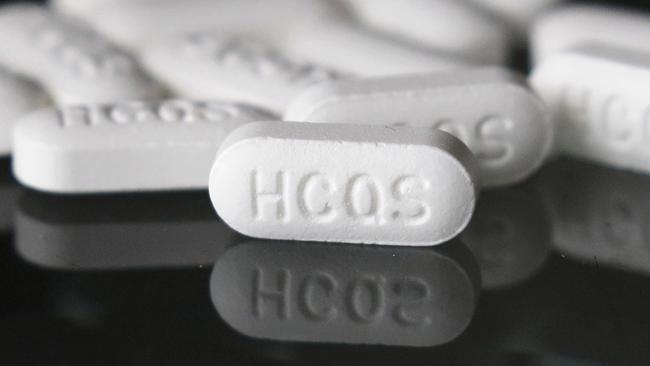Hydroxychloroquine taken off emergency list to treat COVID-19
The US has revoked its emergency-use authorisation for two malaria drugs for the treatment of COVID-19.

The US Food and Drug Administration has revoked its emergency-use authorisation for two malaria drugs, chloroquine and hydroxychloroquine, for the treatment of COVID-19.
“It is no longer reasonable to believe” the two drugs “may be effective in treating COVID-19”, FDA chief scientist Denise Hinton said in a letter.
Nor was it reasonable to believe that “known and potential benefits of these products outweigh their known and potential risks”.
The two drugs were widely touted by Donald Trump and others as useful in helping patients with the disease, which some say contributed to panic-buying and shortages.
The US President disclosed last month that he had taken hydroxychloroquine to ward off possible infection. In one tweet, he had claimed that hydroxychloroquine combined with the antibiotic azithromycin “have a real chance to be one of the biggest game changers in the history of medicine”.
At the White House on Monday, Mr Trump said he was unaware of the FDA’s decision, but added: “It certainly didn’t hurt me.”
The FDA had issued the authorisation for emergency use of the two drugs in March, after the medicines had fallen in short supply. The decision allowed the government to distribute millions of doses donated by drug companies.
But on April 24 it issued a cautionary statement after learning of serious heart-rhythm problems among coronavirus patients who had used chloroquine. At that time, the agency stressed that the medicines hadn’t been shown to be safe and effective against COVID-19, and that they were being studied in clinical trials.
The FDA said clinical trials of both drugs — to determine their effectiveness in treating COVID-19 — would be allowed to continue.
In London, scientists at Imperial College will start the first clinical trials of a potential COVID-19 vaccine this week with more than £45m ($82.4m) from the British government and philanthropic donors.
The trials are the first human tests of a new technology that the researchers say could transform vaccine development by enabling rapid responses to emerging diseases such as the COVID-19 infection caused by the new coronavirus.
About 300 healthy volunteers will receive two doses of the vaccine in the initial human trials to test whether it is safe in people and whether it produces an effective immune response against COVID-19. If it shows promise, larger trials with about 6000 people would be planned for later this year.
More than 100 potential COVID-19 vaccines are in development around the world, including several already in human trials from AstraZeneca, Pfizer, BioNtech, Moderna, Johnson & Johnson, Merck, Sanofi and CanSino Biologics.
The Imperial trials come after the team won £41m in funding from the government plus £5m in donations.
The Wall Street Journal, Reuters



To join the conversation, please log in. Don't have an account? Register
Join the conversation, you are commenting as Logout